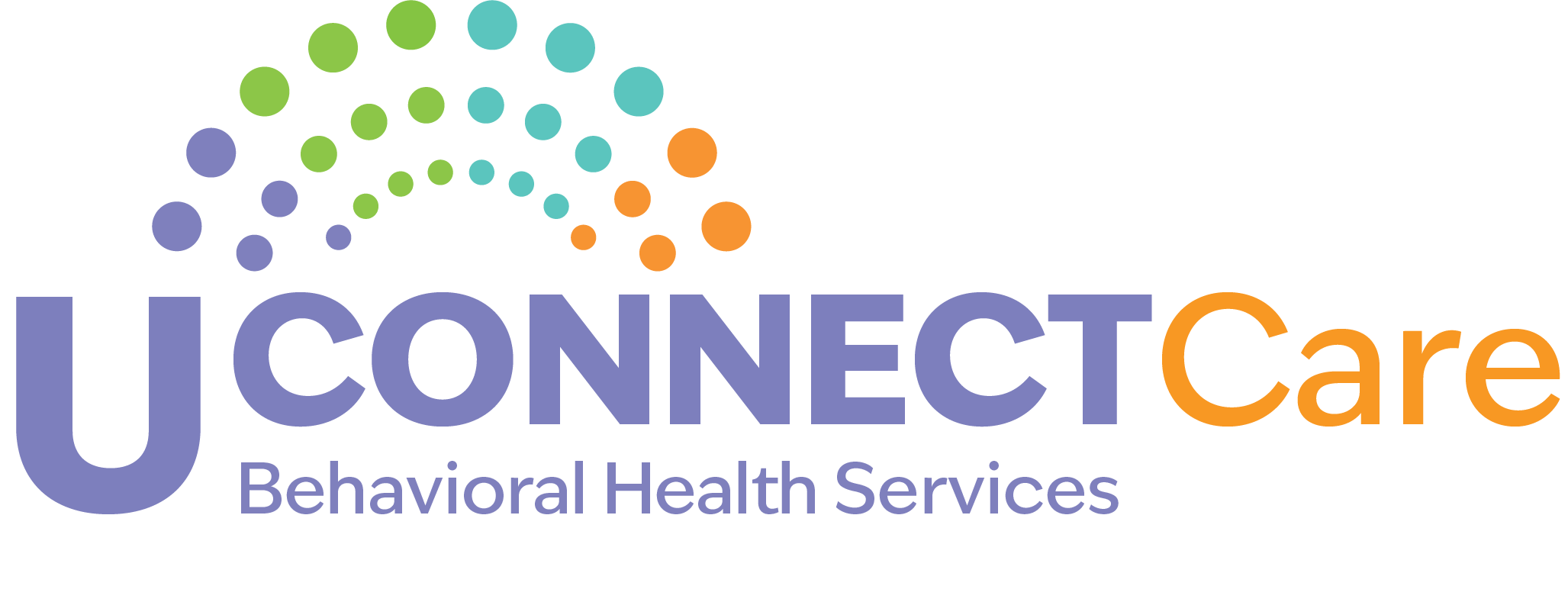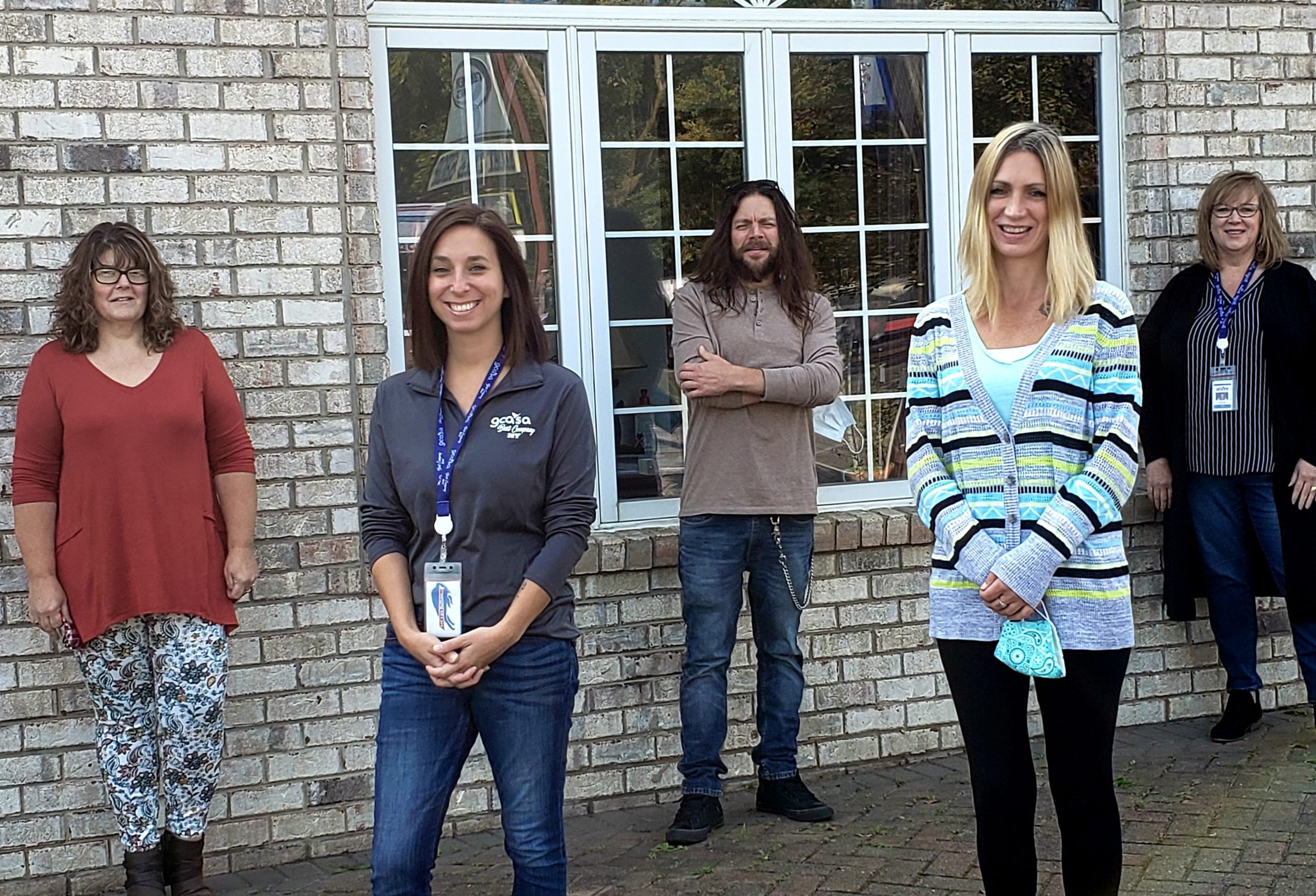By Mike Pettinella
The Prevention Educators at Genesee/Orleans Council on Alcoholism and Substance Abuse have joined forces with the agency’s Certified Peer Recovery Advocates, thus adding another essential element in their quest to reduce underage drinking, smoking and drug use.
“The connection with our peers and The Recovery Station (at 5256 Clinton St. Rd.) is producing fantastic results,” according to Sherri Bensley, assistant director of prevention.
Bensley explained that the department’s six prevention educators are collaborating with peers – UConnectCare employees who, primarily, have gone through the recovery process and now are in a position to share their stories to help others – for presentations at Genesee and Orleans county schools.
“The prevention educator introduces what prevention is and does, and then the peer talks about what happened in his or her life concerning alcohol or marijuana use,” Bensley said. “It really resonates with students who have been drinking or experimenting with marijuana because the kids are like, ‘Oh, well we thought it would be OK to use alcohol and marijuana. We didn’t realize that it could be that dangerous.’
“So, we work with the peers in a way that they get to share their story – generally with high school kids – and the prevention educators talk about what students can do to help themselves or to help their friends if they think they have a substance use disorder.”
Bensley said the cooperative effort provides students with a story they “haven’t heard before and it’s presented in a way that produces results, without using scare tactics.”
“The peers say this is what could happen …this is where I started. Drinking at 12 years old, marijuana at 14, and maybe pills by 18,” she said. “Just to see the progression of how addiction happens and what transpires as a result. Some have gone to prison. Some have found recovery in different ways.”
She said the school sessions focus on peers talking about their pathway to recovery. Then the prevention educators teach the effects of using alcohol, marijuana and other drugs, the signs and symptoms of substance abuse, long- and short-term problems and how to get support if needed.
Shannon Ford, communications and development director at UConnectCare, advised that the utilization of peers into prevention illustrates the agency’s range of services.
“We’re (prevention) at the beginning of the continuum and kind of come full circle to recovery – and, when you think about it, recovery is about prevention,” she said.
Ford also said the days of “bringing in a recovered drug user who tells this horrible story – of all the horrible things they’ve done in their life — have proven to be ineffective.”
“It used to be, ‘Look at me, I’m okay and have come out on the other side,’” Ford recalled. “That message was never very effective for students. It kind of sent the message, ‘Oh look, I can do all of that bad stuff and I’m still going to be okay.’”
She said the UConnectCare peers share stories that show the hardships they went through, but emphasize “the fact that they wish they had made some different choices and things aren’t always okay and easy, and it’s still a struggle. So, the kids get a different message from our peers.”
UConnectCare currently has prevention educators in six schools, with Shellye Dale-Hall in Batavia, Gina Henry in Byron-Bergen, Kristen Gombos in Le Roy, Sheila Harding in Notre Dame, Carol Nicometo in Oakfield-Alabama and Diana Fulcomer in Medina. Diane Klos is the department’s secretary.
Bensley said the prevention educator’s role goes beyond classroom presentations, including face-to-face meetings, producing newsletters, assisting Students Against Destructive Decisions groups and forming new student-led coalitions.
“They may meet with a student who might have violated the code of conduct or a student referred by teachers or administrators who may suspect the student is using alcohol or drugs,” she said. “A prevention educator then would conduct a screening of the student to determine the level of use or to find out if there has been use, and then at that point take them down a track of education to learn about alcohol, marijuana, tobacco and other drugs.
“If they are really using, we take them through a program called Teen Intervene, an evidence-based harm-reduction program. If the student needs more assistance, they will go from there.”
Other evidence-based programming for students of all ages are eight- to 10-week programs such as “Too Good for Drugs” or “Too Good for Violence.”
The prevention-peers link is now part of the Accountability Circles program that serves youth who are ticketed for underage drinking or possession of marijuana or have violated their school’s code of conduct. Participants are referred by the court, probation, school or parents.
“It’s a restorative justice practice – not judgmental – and it’s about repairing the harm,” Bensley said. “They provide education regarding the dangers of drinking and drug use, as well as allow participants to hear peers as community members explain how they are affected by underage substance use.”
Bensley said her department is exploring ways to expand its Children of Addictions Support Group by having sessions at The Recovery Station. COA is a free program for children ages 6-16 whose lives have been hindered by a family member’s or caretaker’s use of alcohol or other drugs.
Additionally, the prevention staff will be coordinating Red Ribbon Week activities at The Recovery Station during the week of Oct. 23-31, she said.
UConnectCare’s Prevention Department is supported by the WNY Prevention Resource Center, which provides technical trainings and workshops, literature and the expertise of a community development specialist, and the Genesee-Orleans-Wyoming (GOW) Opioid Task Force, comprised of community members who serve on work groups in the areas of access to care, community education, data, family/loved one/allies, law enforcement and Naloxone.
For more information about UConnectCare’s Prevention services, contact Bensley at 585-331-8742 or send an email to sbensley@gcasa.org.

